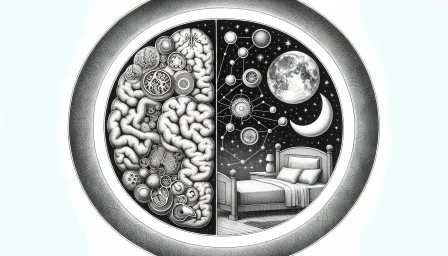Essential Tips for Weight Loss Maintenance and Healthy Habits

Discover essential tips for weight loss maintenance and cultivating healthy habits. Learn how to maintain your ideal weight and lead a healthier life.
Achieving weight loss is a significant accomplishment, but maintaining that weight loss can be equally challenging. Implementing and adhering to healthy habits is crucial for long-term success. This article provides well-researched and essential tips on weight loss maintenance and healthy habits to help you continue your health journey.
Understanding Weight Loss Maintenance
Weight loss maintenance refers to sustaining the reduced body weight over an extended period. To prevent weight regain, it's essential to focus on sustainable lifestyle changes rather than short-term diets.
"The key to long-term weight loss maintenance lies in establishing and sticking to healthy lifestyle habits."
According to recent studies, continuous self-monitoring, regular exercise, and maintaining a balanced diet are pivotal aspects of weight maintenance.
Adopting Healthy Eating Habits
1. Balanced Diet
A balanced diet consists of a variety of foods to ensure you get all the essential nutrients your body needs. Focus on incorporating fruits, vegetables, whole grains, lean proteins, and healthy fats into your meals.
2. Portion Control
Portion control is vital in avoiding excessive calorie intake. Using smaller plates, measuring servings, and being mindful of hunger cues can help you manage portion sizes effectively.
3. Mindful Eating
Mindful eating involves paying attention to the food you eat, savoring each bite, and recognizing your body's hunger and fullness signals. Avoid distractions like television or smartphones while eating.
Incorporating Physical Activity
Regular physical activity is a cornerstone of weight loss maintenance and overall well-being.
1. Consistent Exercise Routine
Aim for at least 150 minutes of moderate-intensity aerobic activity or 75 minutes of vigorous-intensity activity each week, along with muscle-strengthening activities on two or more days a week.
2. Finding Enjoyable Activities
Engage in physical activities you enjoy to make exercise a pleasurable part of your daily routine. Whether it's dancing, swimming, cycling, or hiking, finding joyful ways to move will increase your likelihood of sticking to it.
Building Support Systems
Support from friends, family, or a community can significantly impact your weight loss maintenance journey.
1. Social Support
Surrounding yourself with a supportive network encourages healthy behaviors and provides accountability. Joining a weight loss support group or finding an exercise buddy can be beneficial.
2. Professional Guidance
Consulting with healthcare professionals, such as dietitians, nutritionists, or personal trainers, can provide personalized plans and expert advice to navigate your weight loss maintenance path.
Implementing Behavioral Strategies
Behavioral strategies play a crucial role in maintaining weight loss and fostering healthy habits.
1. Self-Monitoring
Tracking your food intake, physical activity, and progress helps identify patterns and make necessary adjustments. Tools like food diaries or mobile apps can assist in this process.
2. Setting Realistic Goals
Establishing realistic and achievable goals helps maintain motivation and provides a clear direction. Break down larger goals into smaller, manageable steps to track your progress effectively.
3. Stress Management
High stress levels can lead to emotional eating and weight gain. Incorporate stress management techniques such as meditation, yoga, or deep-breathing exercises into your routine to maintain mental well-being.
Maintaining Long-Term Motivation
Staying motivated over the long term is essential for sustaining weight loss and healthy habits.
1. Positive Reinforcement
Rewarding yourself for reaching milestones can keep you motivated. Choose non-food rewards such as a relaxing spa day, new workout gear, or a fun outing.
2. Visualizing Success
Visualization techniques involve imagining yourself reaching your goals and experiencing the positive outcomes of your hard work. This mental practice can enhance motivation and commitment.
3. Re-evaluating and Adapting Goals
Regularly review your goals and adjust them as needed. Life changes, and so will your circumstances—adapt your strategies to fit your current situation while staying aligned with your long-term objectives.
Conclusion
Maintaining weight loss and healthy habits is a lifelong commitment that requires consistency, perseverance, and support. By adopting a balanced diet, regular exercise, behavioral strategies, and building a solid support system, you can successfully sustain your weight loss and lead a healthier life. Remember, the journey to maintaining a healthy weight is continuous, but the rewards for your overall well-being are immense.



























